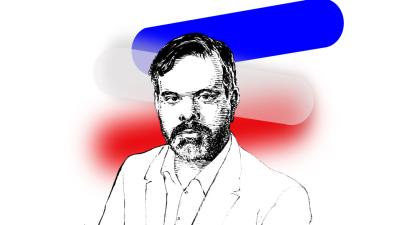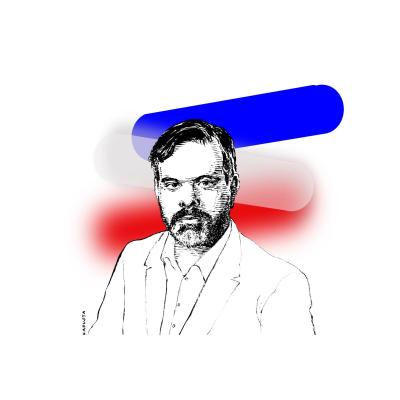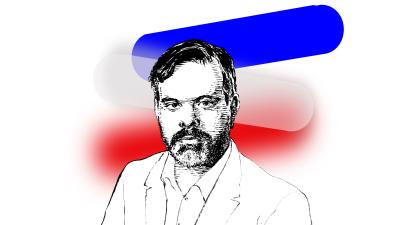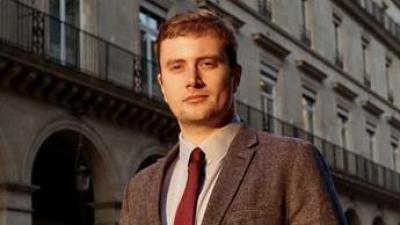The whole world was stunned by the images of violence in France triggered by the death of 17-year-old Nahel Merzouk, who was shot dead by a police officer after refusing to obey his command. The young man was driving a Mercedes-Benz A-Class (Type 177) worth around €30,000, without a licence or insurance, and with a Polish number plate. Nahel was a boy known to the police. Barely 17 years old, he had already been arrested twelve times for various offences and had already refused to yield to the police four times. His last refusal to obey had taken place three days before the tragedy.
The police officer who killed him, aged 38, was a former soldier who had taken part in the war in Afghanistan. The images show him responding to an order to shoot. Under a law enacted in 2017, police officers in France are authorised to fire on a vehicle "whose occupants are likely, in their flight, to perpetrate attacks on the life or physical integrity either their own or that of others". Prior to enacting of that law, the police could only use their weapons in self-defence. However, in 2017, faced with an increase in refusals to yield and the tragedies they caused (people being run over by fleeing drivers), France's political leaders, in their great cowardice, delegated their responsibilities to police officers, allowing them to act according to their interpretation of events. Now they are criticising them for doing so. Emmanuel Macron, for example, judged Nahel's death to be "inexplicable" and "inexcusable" before any judgment had been passed. What was the police officer to do when faced with a repeat offender with no licence, no insurance, driving a powerful car, knowing that there was no time to think long and hard? The decision to shoot is taken in an extremely short space of time. Of course, Nahel's actions in no way merited death, and it would be surprising if that had been the officer's aim. Unfortunately, police officers have the choice between not shooting and putting themselves or others in the vehicle's path in danger, or shooting and getting into trouble.
Admittedly, the French police, as we saw in the Gilets jaunes episode, can be particularly virulent in maintaining order. However, we need to understand that not only are they totally overwhelmed by the insecurity in France, which is reaching mind-boggling levels (see my January report: LINK), but are also employed by the government in a way that can only lead to tragedy. During the anti-retirement demonstrations, it was not uncommon for police officers to be on duty more than 12 hours in a row, with only a sandwich for lunch. Faced with demonstrators who never stop harassing them, after two or three days it's no surprise some of the policemen break down, especially after the riots have been going on for a month. Because of the violence in France, the police are over-mobilised, the justice system is overwhelmed and the prisons are full to bursting. What's more, when the police arrest an ordinary delinquent who hasn't committed a crime, they know that there's a very good chance that he'll be released quickly and that the tons of paperwork they'll have had to write will have been in vain. Faced with a mass of offenders, they are often tempted to just show their presence, admonish the perpetrators and leave it at that. However, this emboldens the offenders, who venture further and further afield – which in turn leads to an increase in the number of people in prison. To relieve the pressure, the less violent offenders are released. As a result, the police are increasingly overwhelmed, focusing on the most violent offenders and being forced to let more and more reprehensible acts go unpunished. Today, if the government wanted to arrest all the thousands of rioters, it would be impossible. Prison places would have to be freed up. Imagine the feeling of impunity those rioters would have. It's an invitation to carry on. It's like in a casino, you play as long as you are winning. This is a vicious circle, maintained by politicians and the public alike.
Schools, shopping centres, small shops, public transport and police cars were destroyed or looted. Countless public structures were burnt down. More than 500 police officers were injured, journalists and elected representatives were assaulted, an 80-year-old priest was beaten up, and thousands of French people were intimidated and prevented from going to work. Some of the rioters made hateful, anti-Semitic speeches. And what? Nothing, the population remains sluggish, journalists and political leaders blame themselves. It's the fault of colonisation, racism, lack of social diversity, social networks and online games. They prefer to pander to the rioters. Which is irresponsible, because it only legitimises them and therefore spreads the fire. The National Assembly even went so far as to hold a minute's silence for Nahel, making this young delinquent a national martyr. What kind of example is this for young people? The government's benevolence towards the rioters, compared with its determination against the Gilets Jaunes, is edifying. The urban elites have far more empathy for the inhabitants of the suburbs than for those on the outskirts. The suburbs have become the reservoir of their servants, taxis, Uber, drivers, cooks, dishwashers, etc. at low prices. They have become indispensable to urbanites who want to lead a comfortable, self-centred bourgeois life. By comparison, the suburbs, with their boorish lifestyles (cars, fags, barbecues and families), are a place where they find nothing but insufferable, useless hicks.
You need a pretty bad faith not to find "Le Camp des saints" by the French writer Jean Raspail prophetic. This novel, published in 1973 at a time when the problems of immigration did not exist, narrates the submergence of Western civilisation in general and France in particular by mass immigration. In that book, whose plot takes place over a short period of time, we find everything that we have experienced over the last 40 years. People fleeing miserable countries, unable to assimilate into French culture and turning violent. Journalists whose stories are designed to convince every Westerner that migrants will "enrich, cleanse and redeem the capitalist West". That we are "more virtuous" nations than others and that our duty is therefore to accept all migrants unconditionally. The book even includes an episode in which the press tries to cover up a heinous murder committed by migrants. Political leaders, out of cowardice, leave it to the discretion of the security forces whether or not to intervene to defend the population. The non-urban populations on the outskirts who resist are subjugated by their own government. In a short space of time, most Western governments have allowed themselves to be dominated, with the exception of one country which is treated like a rogue state, but which finally capitulates under pressure from other governments and its pro-migrant citizens.
There is a disturbing parallel between the 'March for Justice' of Prigogin and his mercenaries, which discredited the Russian regime internationally, and the looting in the name of 'Justice for Nahel', which discredited France. Both the countries are declining nuclear powers whose power is being challenged. Historically, France and Russia are countries that have always found it difficult to reform and have had to resort to violent revolutions to do so. They have often been the harbingers of upheavals and chain revolutions in other countries over several decades. As Raymond Aron reminded those who believed that the future of the world was heading inexorably towards democracy and progress, "history is tragic". The historical moments we are living through encourage us to take this on board and prepare ourselves accordingly.
Read also
Europe's Southern Flank Under Russian Attack
We underestimate the determination of the KGBists in power in Moscow to take revenge on the West so much that we refuse to see their attack on our southern flank.
Patrick Edery
The strange case of Yvan Colonna – the rule of law which excludes Corsica
Apart from the fact that Colonna’s arrest and death helped Presidents Sarkozy and Macron at key moments, the rule of law was absent throughout the investigation leading to Yvan Colonna's arrest and death.
Patrick Edery
Loup Viallet: To become an essential power on the European stage, Poland must develop its African geopolitics and build convergences with France
Loup Viallet is a specialist in African geopolitics and international economics










Comments (0)